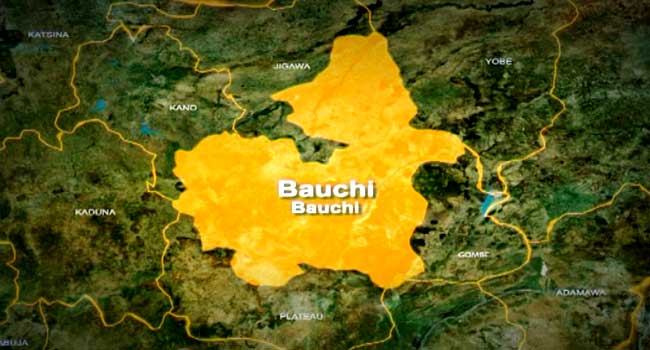Thirty-seven condemned prisoners are awaiting execution in Bauchi State.
The public relations officer (PRO) of the Nigerian Correctional Service (NCoS), Bauchi State Command, Mr Ahmed Tata, revealed this to the News Agency of Nigeria (NAN) in Bauchi yesterday.
Reacting to a NAN survey on why the state governors are reluctant to sign death warrants, Tata said the condemned prisoners comprised 36 males and one female.
He recalled that none of the democratically elected governors in the state had signed death warrants since 1999.
The spokesman, however, said that governors during the military might have signed death warrants for those on death row.
Meanwhile, a legal luminary, Jubrin S. Jubrin, has urged the state governors in the country to expedite signing the death warrant of condemned prisoners to ensure justice.
Jubrin said the actions of the governors might be connected to the dismal number of condemned prisoners in the country.
“The governors have a duty to ensure that once the court has sentenced somebody to death and he has exhausted the chances of appeal, the sentence should be executed.
“Although the signing of a death warrant also depends on a particular state, its geographical location, and its culture, these might be the determining factors in handling these responsibilities.
“Second, the role of the office of the attorney-general as the chief law officer of a state, each attorney-general has a binding duty to offer advice on all legal matters, including the exercise of the power to sign death warrants by the governors.
“We need to know, are there very many? If there are many, probably, it would have raised a concern as to why we are keeping so many people awaiting execution?
“Why not just forgive them if the governor wants to or if he is committing to the execution, it should be done once and for all,” he said.
The chairman of the Network for Civil Society Organisations (CSOs) in Bauchi, Mr Garba Jinjiri, said the irreversibility of execution was one reason behind the governors’ reluctance to sign the death warrant.
“What I mean here is that if a mistake is later discovered, like a wrongful conviction, it cannot be corrected after execution. Also, some convicts may still have cases under appeal or awaiting decisions from higher courts.
“I also want to believe that some governors personally believe in the sanctity of life or oppose capital punishment on ethical grounds,” he said.
According to him, executions could spark protests or criticism from human rights groups, academia and the public.
The governors, he said, might avoid signing the death warrant to prevent alienating voters or interest groups.
Also, a Jigawa State-based political analyst, Dr Muhammad Reza, said the democratic constitution indirectly impeded the implementation of capital punishment in Nigeria.
He said the constitution vested the authority to approve executions in the hands of the governor and the president.
Reza said the governors consistently withheld such approval primarily to avoid antagonising foreign donors, who might judge them based on human rights standards, and withdraw their support.
“They fail to realise that this reluctance has contributed to a steady rise in criminality across the country since 1999. There is a growing argument that justice should be proportional, just tit for tat,” he said.
Reza, however, called for a review of capital punishment in the country.
Another lawyer, Hassan Muhammed, said the Nigerian constitution and legal system empowered governors with the final power to authorise the execution of capital punishment. Still, it has been impeded due to various legal, ethical, political, and procedural considerations.
According to Muhammad, Section 212 of the 1999 Constitution gives the governors the prerogative of mercy, enabling them to grant a pardon, substitute a lesser punishment, or affirm a death sentence.
“This means a governor must personally approve the execution of a condemned inmate, thus placing a heavy legal and moral responsibility on the individual, often deterring them from exercising their powers.
“Nigeria’s legal system is often criticised for delays, weak investigation procedures, and lack of access to quality legal representation, and wrongful convictions are indeed a real risk.
“Executing someone whose conviction might later be overturned poses serious legal and human rights implications since Nigeria is a signatory to several international human rights treaties,” he said.
In the same vein, Yusuf Abubakar attributed the governors’ actions to the growing campaign against capital punishment by human rights and development organisations despite its legality in Nigeria.
Abubakar said that signing a death warrant was politically sensitive as the governors might face public backlash or protests from human rights groups, religious bodies, or political opponents.
He said that many governors avoided such decisions during their terms in office thereby leaving the condemned prisoners in a legal limbo.
“Nigeria is a deeply religious country and both Christianity and Islam emphasise mercy and forgiveness, thus personal beliefs of a governor often play a role in making such decisions.
“A governor who is morally or religiously opposed to capital punishment may decline to sign death warrants, regardless of the law,” he revealed.
While capital punishment remained legally valid under Nigerian laws, Abubakar said that the governors’ reluctance to sign death warrants reflected a complex legal caution, moral reservation, political calculation, and procedural dysfunction.
He said these factors created a de facto moratorium on execution, resulting in thousands of condemned inmates languishing in limbo.











